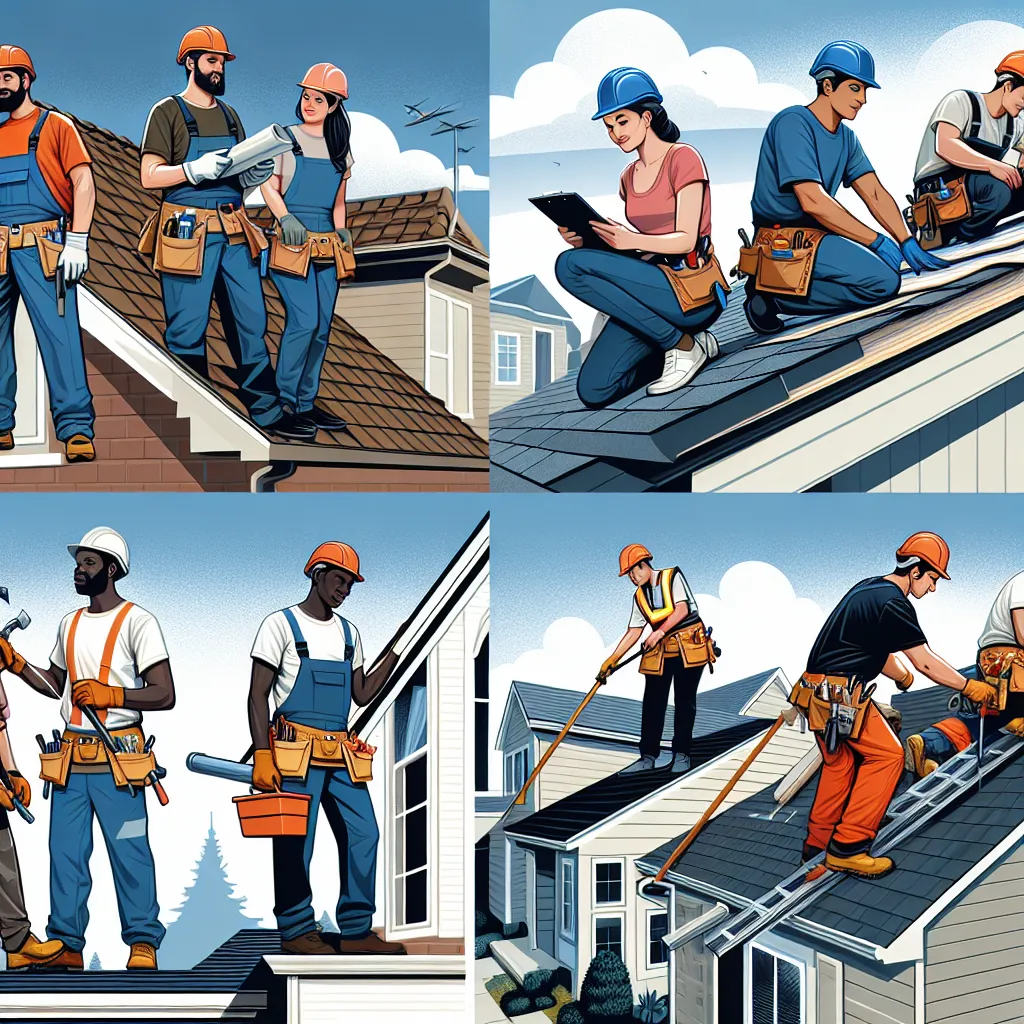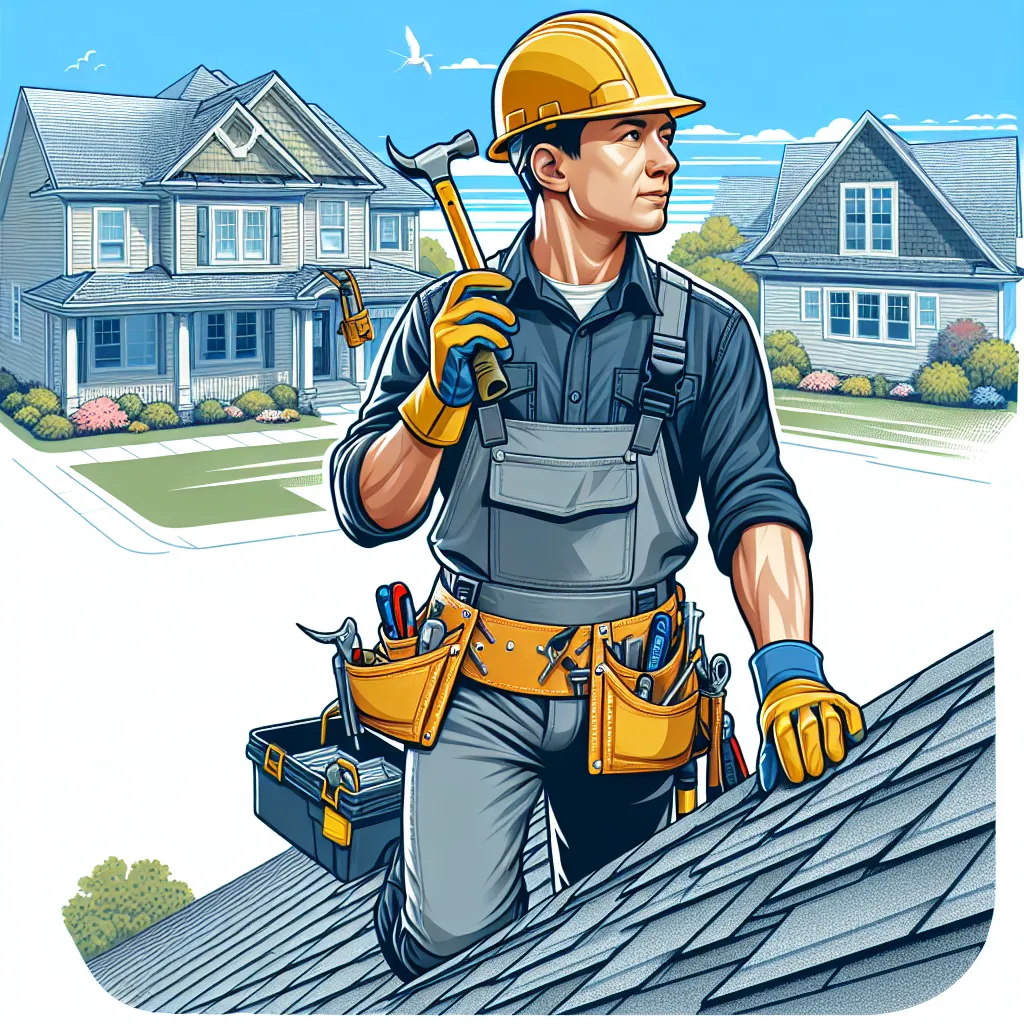Every year, countless homeowners wrestle with the decision to hire a roof replacement contractor, but sorting fact from fiction can feel like deciphering another language. Finding the right professional isn’t just about cost—it’s about trust, transparency, and lasting value. The wrong choice could mean water leaks, lost money, or even legal headaches. If you’re looking for reliable help with your roof replacement contractor project, understanding the essentials will save you from common, expensive mistakes.
What Is a Roof Replacement Contractor and Why Do They Matter?
A roof replacement contractor specializes in removing your existing roof and installing a new one. Their role goes far beyond hammering nails; they coordinate materials, manage labor, follow local codes, and ensure your home is protected from the elements. Why does this matter? Because your roof is your home’s first line of defense—cutting corners or hiring the wrong person can lead to damage, higher energy bills, and major headaches down the road.
The Role in Safeguarding Your Home
Think of a roof replacement contractor as a conductor, orchestrating complex tasks so your home stays safe, dry, and energy-efficient. They pull permits, select quality materials, manage timelines, and oversee skilled workers. Without a knowledgeable pro, you risk shoddy workmanship that turns your investment into a money pit.
Key Benefits of Hiring a Roof Replacement Contractor
Choosing a professional for your roof replacement is a game changer. Here’s why:
- Expertise: Licensed contractors know the latest codes, materials, and safety practices.
- Warranty Protection: Most offer warranties for both labor and materials, giving you peace of mind.
- Efficiency: Pros work faster and more precisely, minimizing disruption to your life.
- Proper Disposal: They handle the messy business of removing and discarding old roofing.
- Insurance Coverage: Legitimate contractors carry insurance, protecting you from accidents.
At a Glance: Pros and Cons
| Benefits |
Drawbacks |
| Quality workmanship |
Higher upfront cost than DIY |
| Compliance with local codes |
Some may have long wait times |
| Access to better materials |
Varying levels of communication |
| Labor and material warranties |
Risk of hiring unqualified contractors |
Common Drawbacks and Pitfalls
Let’s be honest: not every roof replacement contractor delivers on their promises. Watch out for:
- Hidden Fees: Some sneak in extra charges for permits or disposal.
- Lowball Bids: Ultra-cheap quotes often mean poor materials or rushed jobs.
- Unclear Contracts: Vague language can leave you paying more than expected.
- Limited Warranty: Some warranties cover only materials, not labor.
Pro Tip: Always ask for detailed, written estimates and clarify what’s included before signing anything.
Practical Use Cases for a Roof Replacement Contractor
You might need a roof replacement contractor if:
- Storm or Hail Damage: After severe weather, insurance may require a pro’s assessment.
- Aging Roof: Asphalt shingles typically last 15–30 years; beyond that, replacement is smart.
- Major Leaks: Patching won’t cut it if leaks are widespread or recurring.
- Home Sale Prep: A new roof boosts curb appeal and resale value.
Example Timeline: Typical Roof Replacement Project
| Step |
Timeframe |
| Initial inspection |
1 day |
| Estimate & contract |
1–3 days |
| Material ordering |
2–5 days |
| Removal of old roof |
1 day |
| Installation of new roof |
1–3 days |
| Final inspection & cleanup |
1 day |
How to Evaluate Roof Replacement Contractors
Not all contractors are created equal. Here’s how we weed out the good from the not-so-good:
1. Check Credentials
- Is the contractor licensed and insured? Always verify in your state.
- Do they have local references and a physical business address?
2. Scrutinize Contracts
- Are all materials, brands, and colors listed?
- Do payment terms and timelines make sense?
- Is warranty coverage spelled out for both labor and materials?
3. Compare Costs—But Dig Deeper
- Cheapest isn’t always best. Compare labor, materials, and warranty side by side.
- Ask about hidden fees for permits, disposal, or repairs.
4. Evaluate Communication
- Do they return calls promptly?
- Are they patient with your questions?
- Will they keep you updated during the project?
Sample Contractor Evaluation Table
| Evaluation Criteria |
What to Look For |
| License & Insurance |
Up-to-date, verified in your jurisdiction |
| References |
Recent, local, positive reviews |
| Written Estimate |
Clear, itemized, no surprises |
| Warranty |
Both labor and materials included |
| Communication |
Transparent, friendly, reliable |
Real-World Examples: Roof Replacement Contractor Success Stories
Story 1: Fast Turnaround After a Storm
After a spring hailstorm, a homeowner called a roof replacement contractor who inspected the damage the next day. They worked with the insurance adjuster, replaced the roof within a week, and the client reported zero leaks in the next big storm.
Story 2: Major Upgrade Before Selling
A couple needed a new roof before putting their house on the market. The contractor helped them choose energy-efficient shingles that matched the home’s style. Their home sold in two weeks—$10,000 above asking price.
Story 3: Fixing a Botched DIY Attempt
One family tried to replace their roof on their own, but botched the underlayment, causing leaks. A pro came in, fixed the mistakes, and provided a written warranty. The family finally slept easy knowing their home was protected.
Most-Asked Questions: Roof Replacement Contractor
How long does a roof replacement usually take?
Most jobs take 1–3 days, but weather, roof size, and complexity can affect the timeline.
What should I ask before hiring a roof replacement contractor?
Ask about licensing, insurance, references, warranties, and get a detailed written estimate.
Are permits required for roof replacement?
Yes, in most places permits are required. A reputable contractor will pull them for you.
How can I spot a bad roof replacement contractor?
Watch for vague contracts, requests for large upfront payments, lack of references, or no proof of insurance.
Will replacing my roof increase my home’s value?
Absolutely! A new roof can boost curb appeal and is a big plus for resale.
What’s usually covered by a roof replacement warranty?
Good warranties cover both materials and labor, but always read the fine print.
How should I prep my home for roof replacement?
Move vehicles away from the house, cover valuables in the attic, and let neighbors know about the noise.
Choosing a roof replacement contractor isn’t just a checkbox on your to-do list; it’s an investment in your home, your comfort, and your future peace of mind. There’s a lot to weigh, from credentials and costs to warranties and communication style. By staying informed and asking the right questions, we protect ourselves from costly mistakes and enjoy the kind of home protection that only a truly professional job can bring. If you’re feeling overwhelmed, you’re not alone—just take it one step at a time and trust your gut (even if it’s sometimes a little nervy).
Roof Replacement Contractor
Choosing the right roof replacement contractor is crucial for a durable, high-quality roof. A reputable contractor offers expertise, warranty coverage, and reliable service.
Why Hire a Professional?
- Licensed & Insured: Protects you from liability.
- Experience: Ensures proper installation.
- Warranty: Covers labor and materials, providing peace of mind.
- Efficiency: Complete projects faster and correctly.
Key Comparison
| Feature |
DIY |
Professional Contractor |
| Cost |
Lower upfront |
Slightly higher, but includes warranties |
| Quality & Durability |
Risk of mistakes |
High-quality, long-lasting results |
| Time & Effort |
Time-consuming |
Efficient and hassle-free |
Trustworthy contractors will perform thorough inspections, clarify project scope, and provide detailed written estimates.
Ready to upgrade your home? Find a certified roofing contractor today for expert service and lasting protection!
Frequently Asked Questions About Hiring a Roof Replacement Contractor
How long does a typical roof replacement take?
Most roof replacement projects take between 1 to 3 days, but the exact timeline depends on factors like the size of your roof, weather conditions, and the complexity of the job.
What should I ask a potential roofing contractor before hiring?
You should ask about their licensing and insurance, request references, get a detailed written estimate, and clarify warranty coverage for both materials and labor.
Are permits required for roof replacement projects?
Yes, most localities require permits for roof replacement, and a reputable contractor will typically handle the permit process for you.





